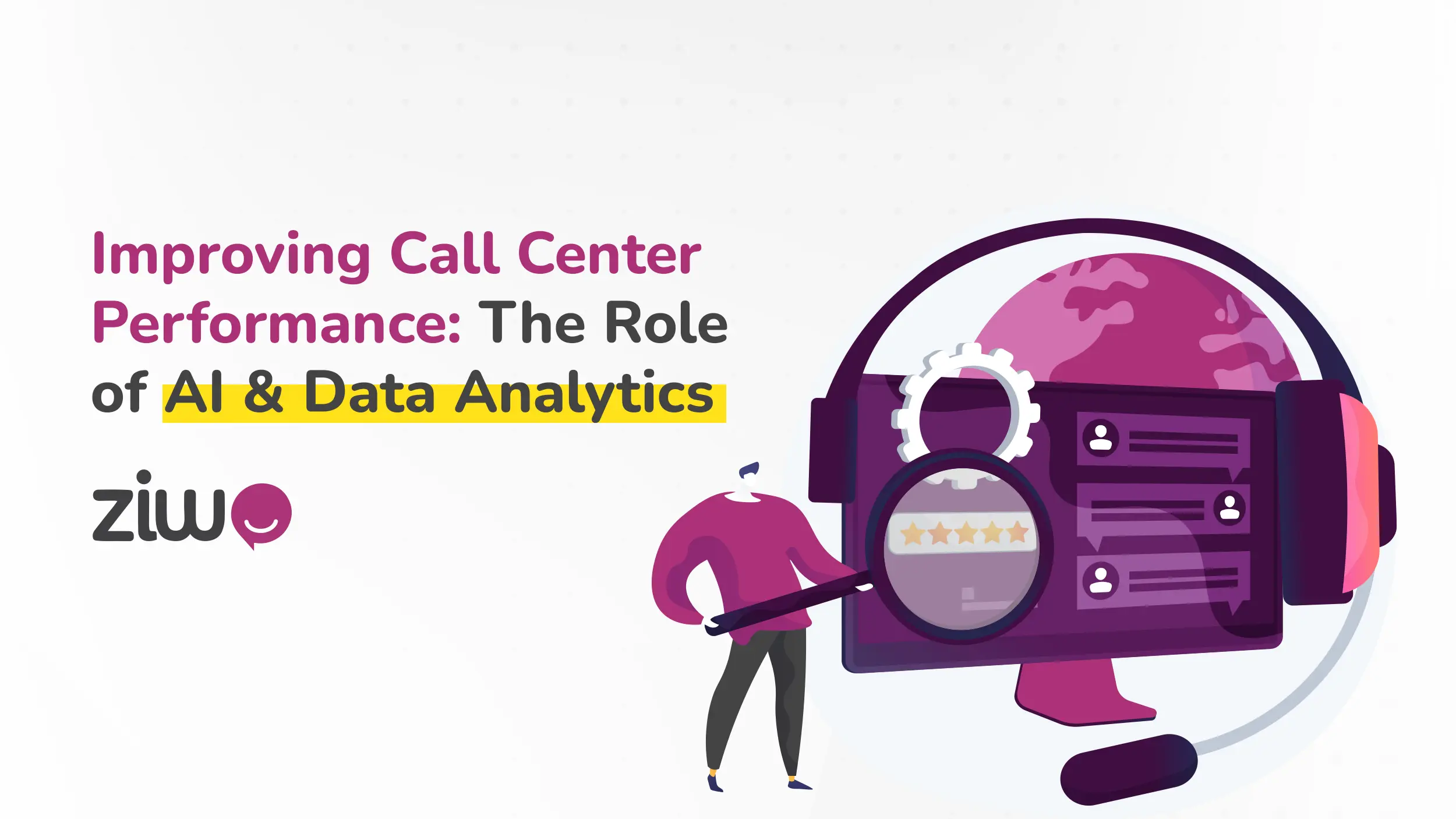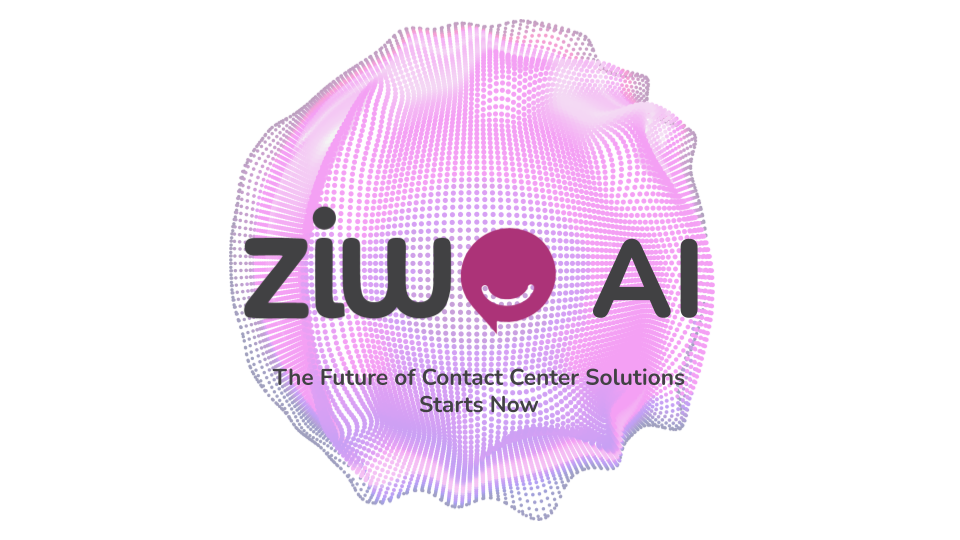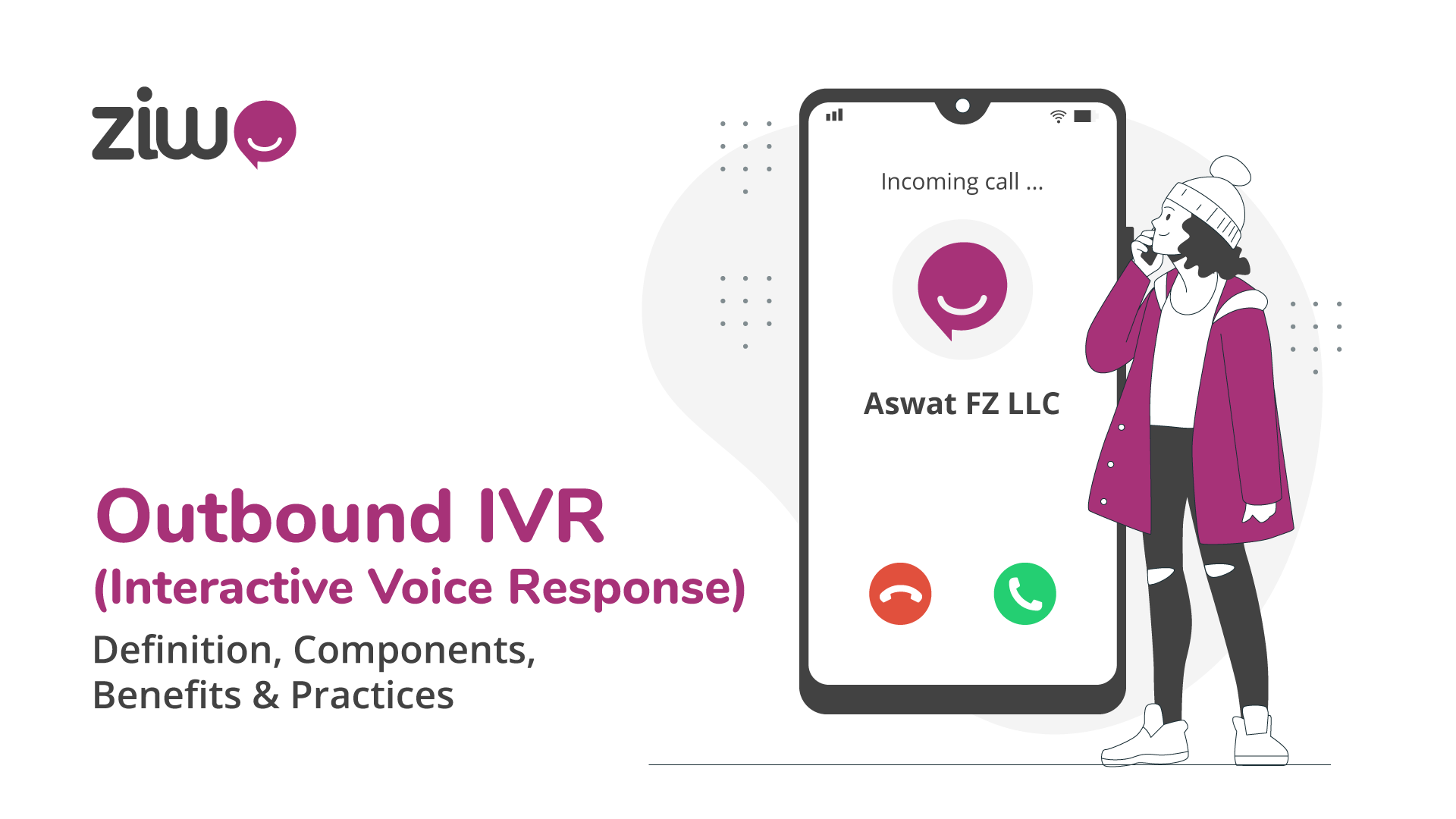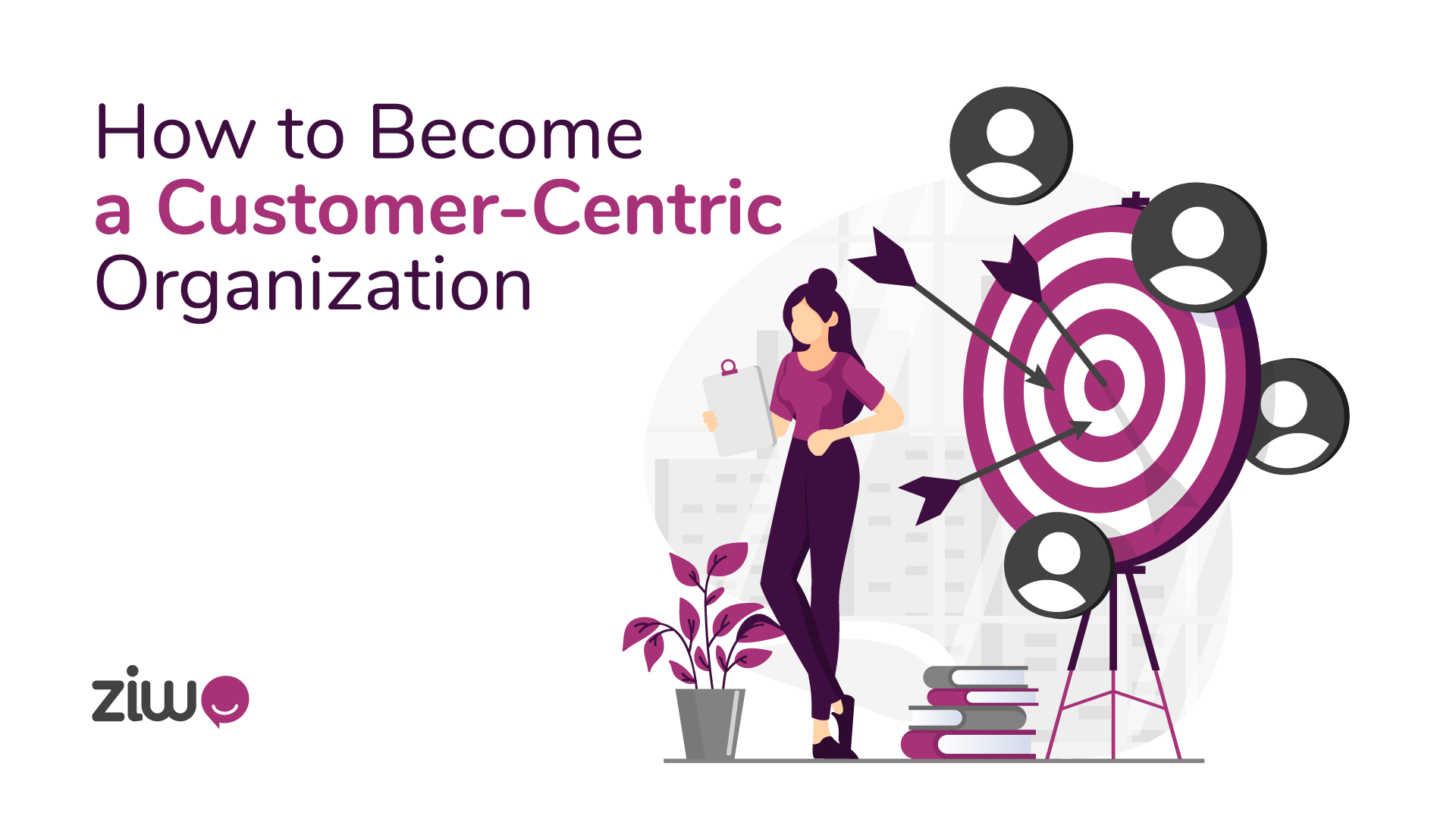
Improving Call Center Performance: The Role of AI and Data Analytics
Increasing your revenue with a rate between 4% and 8% above the market could be an easy goal!1
If you’re asking how it could be that easy, improving the call center performance is the correct answer!
The call center is crucial in developing a suitable customer experience that builds solid relationships and creates new opportunities, especially with revolutionary cloud call center software.
During the current decade and for years to come, CX has been a common factor in business growth and revenue increase. For some businesses, it resulted in revenue growth of 80%.
And when we say development, you can easily see it coming: AI and Data Analytics!
This article discusses the best practices for improving call center performance using AI and data analytics to help you gain an edge over competitors.
If you need to make the customer experience a competitive differentiator for your business, read the article till the end!
The Role of AI in Modern Call Centers
AI is essential in optimizing modern call centers, as it's becoming a part of our daily lives. So, it's logical to include it in call centers. Artificial intelligence processes the input the customer provides or interacts with the agents' tasks to make it more efficient.
Enhancing Customer Interaction With AI
The customer expects specific interactions with his inquiries, requests, and prompts. So you can find an AI that can analyze his tone quickly. The real-time sentiment data analysis helps your agents know more about the customers' feelings and recommend how to deal with them.
Also, AI supports your call center scalability! Not all of your agents will be available when your customers use an instant messaging live chat, and that's normal. Who might save the day in this case? It's simply an AI chatbot!
AI-Powered Efficiency for Call Center Operations
Optimizing call center operations involves tasks that require human effort and analysis. However, by automating workflows, AI can suggest new products or complementary services for upselling and cross-selling based on the customer's previous activities, thereby increasing sales potential.
AI becomes an intelligent assistant that provides the agent with data according to the situation. This method will help the agent resolve the issues faster and close the deal based on updated data in real-time, which guarantees continuous operational efficiency.
Artificial intelligence studies every case the customer calls for and collects data that helps operations be more efficient.
The Impact of Data Analytics on Improving Call Center Performance
Getting insights about customers, deals, tickets, and resolutions always results in agents who better comprehend the business capabilities and tools. The data analysis also displays the team’s performance and lets the team leaders know more about the agents’ productivity and the results they deliver.
Making Data-Driven Decisions
After gathering the factors from every available source, detailed reporting guides the individuals in charge of decision-making on the reasons that lower the business KPIs, including CSAT. Data analytics helps the management board redirect the course to get better results by offering training sessions, implementing more advanced tools in the workspace, or other deep-rooted solutions that help agents deliver enhanced performance. Qualifying better agents and employees eventually turns into more customer satisfaction.
Real-Time Analytics for Immediate Insights
AI in call centers and data analytics can provide limitless immediate insights. Numerous types of real-time analytics maximize data utilization. It includes:
- Speech analytics: After the agent ends the call, AI provides insights about the customer's expressions. The analytics also clarify the dominant mood of the recorded call and guide the agent to the next step in which he should talk with the customer.
- Text analytics: Call center solutions include chat messengers that allow text conversations between customers and agents. Like recorded calls, the AI analyzes the saved chat to deliver insightful data about the communication's goal and whether it's covered. Now, you can get a better grasp of both the agent’s and the customer’s behaviors.
- Predictive analytics: Imagine you have an e-commerce megastore that sells everything. Certain customer activities showed that she was buying maternity clothes starting in the fifth month of pregnancy. The AI informs the agents of the customers who need to buy newborn baby boy and baby girl clothes. These analytics will help agents be aware of the regularly generated accessible opportunities.
- Desktop and mobile analytics: If you have a business website integrated into the call center software, where each user has an account, AI can determine the customers' navigation, mentioning the activities and most visited business pages.
- Omnichannel analytics: Providing personalized service needs software that gathers data from all business-related channels for a more customized customer experience. AI succeeds in understanding the customer more and helping him achieve his goals.
- Self-service analytics: Offering self-service options benefits both customers and agents. The agent will use his full-time on calls that critically need his help. The customer will get his issues solved the fastest possible way, as he’ll resolve the problem and gain knowledge from credible resources. The analytics will help you know the most and least used services here.
Integrating AI and Data Analytics Into Call Center Software
AI and data analytics are leading call center software into more comprehensive applications, making their role even more vital for any business. Every function contact center software currently performs is now 10X better with the help of AI and data analytics. For example:
More Accurate Call Routing
AI can route the call to the correct department and the agent with sufficient skills by learning customer personality models, previous call histories, and behavioral data. Based on the data gathered related to the case, AI can route the call to be fully managed by an automated system that needs no human intervention. The customer’s input and previously analyzed data become the central controller for determining the perfect match for the caller. An AI can manage many types of call routing, including:
- Direct Routing and Hunt Groups
- Skills-Based Routing
- Intelligent Call Routing
- Least Idle Routing
- Fixed Order Routing
- Round-Robin Routing
Campaign and Agent Workflow Customization
Instead of repetitive and unengaging tasks, AI develops a seamless experience that turns monotonous tasks into more enjoyable ones. Here, agents can focus on tasks the clients need from them, taking the wheel in specific. Based on the agent’s performance and productivity, AI recommends the most suitable training for quality assessment and delivering top-notch customer services.
Better Coverage for Most Discussed Topics
Conversation intelligence powered by AI scans all the recorded calls and quickly determines the causes of most of them. The feature will help your call center become more aware of customer needs. Agents can proactively determine the reason for the customer’s call. From a business perspective, you will know about the drawbacks your customers struggle with and work on improving.
Challenges and Solutions in Implementing AI and Data Analytics
Despite the continuous efficiency improvements that AI and data analytics have made to your call center's status, the process faces some challenges.
Your Business Specifics Customization
Like any other business element that needs customization, AI-powered solutions require time to perfect your company’s standards. Management must be patient during the initial setup and testing, and the team will need training. The solution here is to determine SMART goals from the early beginning to save as much time as possible.
Learning Corrupted Data
It’s an innovative technology that radically improves call center performance. However, it needs accurate human supervision to check whether the machine is learning homogenous data or is not well organized. Especially for customer service, your business should be 100% sure that the chatbots and automated responses meet the level of service the customers expect.
Undetermined Bias and Discrimination Occurrence
To protect your business environment from biased data training, you must ensure that the software provider adopts AI systems trained on inclusive and representative data.
Case Studies: Success Stories of AI and Data Analytics in Action
According to a study conducted by HubSpot, 62% of customer support professionals believe that AI, data analytics, and automation tools helped them become more aware of customers and their needs. In addition, 78% of customer support specialists confirmed that AI helped them spend more time performing the functions of their strategic roles.
In the same study, advanced call routing became the most needed feature that CX experts looked forward to using by a percentage that reached 25%. And 50% of customer support specialists saw that generative AI has the most potential to develop a more personalized customer experience.2
The Future of AI and Analytics in Call Centers
The future trends are about more development, improving call center performance, and maintaining customer service quality while adhering to business ethics and principles. We expect chatbots to handle more complex conversations; however, at a certain point, human call center agents will have the edge over machines by becoming more flexible in handling the situations customers put them through.
Conclusion: Navigating the Future With AI and Analytics
It’s just the beginning! The results of embedding AI and data analytics in the CX scene include improving call center performance, facilitating internal processes and customer interaction, and cutting operational costs. In conclusion to the topic we discussed throughout the article, you can agree with us on the following points:
- AI and data analytics enable businesses to know more about customers.
- The knowledge the agents acquire helps them develop better experiences for customers and interactions.
- Advanced intelligent technologies provide automated workflows that help employees do their work faster and more efficiently.
References
1 – The five disciplines of customer experience leaders:
¹ Bain & Company (n.d.). The Five Disciplines of Customer Experience Leaders. Available at: https://media.bain.com/Images/BAIN_BRIEF_Five_disciplines_of_customer_experience_leaders.pdf
2 – The state of AI in customer service:
² HubSpot (n.d.). The State of AI in Customer Service [New Data]. Available at: https://blog.hubspot.com/service/state-of-ai-in-service











